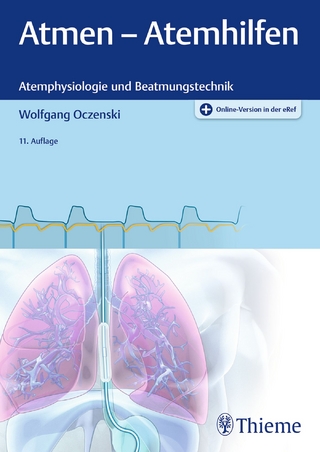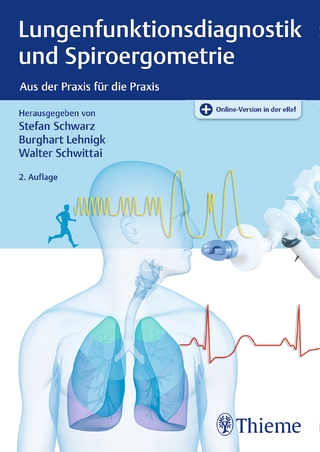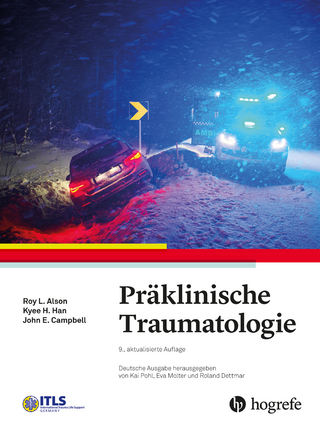
Drug Allergy
Clinical Aspects, Diagnosis, Mechanisms, Structure-Activity Relationships
Seiten
2016
|
1st ed. 2013
Springer-Verlag New York Inc.
978-1-4939-6390-4 (ISBN)
Springer-Verlag New York Inc.
978-1-4939-6390-4 (ISBN)
This book details the full range of drugs that provoke true (type 1) drug allergies. It will serve as a vital reference for practitioners right across the medical disciplines, from surgeons to nurses, pharmacists to dentists.
The variety of chemically diverse pharmacological agents administered to patients is large and continues to expand and with every new drug released, there is always potential for adverse reactions, some of them allergic. With its roots in immunology and pharmacology, the science of drug allergy is becoming better understood and applied as its importance is increasingly recognized throughout the many branches of medicine. Drug Allergy: Clinical Aspects, Diagnosis, Mechanisms, Structure-Activity Relationships sheds new light on this field. Comprehensive in design, this authoritative title identifies the most important culprit drugs implicated in immediate and delayed drug hypersensitivities and offers up-to-date information on classifications, diagnoses, underlying mechanisms and structure-activity relationships. Chapters dealing with the molecular and cellular mechanisms of drug hypersensitivities, non-immune-mediated sensitivities and diagnostic methods are presented as introductory material for in-depth treatises on the β-lactam antibiotics, other antibiotics and antimicrobials, drugs used in anesthesia and surgery, opioid analgesics, corticosteroids, monoclonal antibodies and other biologics, drugs used in chemotherapy, proton pump inhibitors, iodinated and gadolinium-based contrast media and non-steroidal anti-inflammatory drugs. In addition to being of immense value to clinicians, other health care professionals and researchers, this title will prove invaluable for those taking undergraduate and graduate courses in science and will also serve as a useful text for students of medicine, pharmacy, nursing and dentistry.
The variety of chemically diverse pharmacological agents administered to patients is large and continues to expand and with every new drug released, there is always potential for adverse reactions, some of them allergic. With its roots in immunology and pharmacology, the science of drug allergy is becoming better understood and applied as its importance is increasingly recognized throughout the many branches of medicine. Drug Allergy: Clinical Aspects, Diagnosis, Mechanisms, Structure-Activity Relationships sheds new light on this field. Comprehensive in design, this authoritative title identifies the most important culprit drugs implicated in immediate and delayed drug hypersensitivities and offers up-to-date information on classifications, diagnoses, underlying mechanisms and structure-activity relationships. Chapters dealing with the molecular and cellular mechanisms of drug hypersensitivities, non-immune-mediated sensitivities and diagnostic methods are presented as introductory material for in-depth treatises on the β-lactam antibiotics, other antibiotics and antimicrobials, drugs used in anesthesia and surgery, opioid analgesics, corticosteroids, monoclonal antibodies and other biologics, drugs used in chemotherapy, proton pump inhibitors, iodinated and gadolinium-based contrast media and non-steroidal anti-inflammatory drugs. In addition to being of immense value to clinicians, other health care professionals and researchers, this title will prove invaluable for those taking undergraduate and graduate courses in science and will also serve as a useful text for students of medicine, pharmacy, nursing and dentistry.
Dr. Brian A. Baldo Dr. Nghia H. Pham
Preface.- Chapter 1 Adverse Reactions to Drugs and Drug Allergy: Scope of this Book.- Chapter 2 Classification and Descriptions of Allergic Reactions to Drugs.- Chapter 3 Mechanisms of Hypersensitivity.- Chapter 4 Diagnosis of Allergic Reactions to Drugs.- Chapter 5 β-Lactam Antibiotics.- Chapter 6 Other Antimicrobial Drugs.- Chapter 7 Drugs and Other Agents Used in Anesthesia and Surgery.- Chapter 8 Opioid Analgesic Drugs.- Chapter 9 Non-Steroidal Anti-Inflammatory Drugs.- Chapter 10 Contrast Media.- Chapter 11 Biologics.- Chapter 12 Corticosteroids.- Chapter 13 Drugs Used for Chemotherapy.- Chapter 14 Proton Pump Inhibitors.- Postface.
| Erscheinungsdatum | 08.10.2016 |
|---|---|
| Zusatzinfo | 70 Illustrations, color; 158 Illustrations, black and white; XVIII, 447 p. 228 illus., 70 illus. in color. |
| Verlagsort | New York |
| Sprache | englisch |
| Maße | 178 x 254 mm |
| Themenwelt | Medizin / Pharmazie ► Gesundheitswesen |
| Medizin / Pharmazie ► Medizinische Fachgebiete ► Anästhesie | |
| Medizin / Pharmazie ► Medizinische Fachgebiete ► Dermatologie | |
| Medizinische Fachgebiete ► Innere Medizin ► Pneumologie | |
| ISBN-10 | 1-4939-6390-2 / 1493963902 |
| ISBN-13 | 978-1-4939-6390-4 / 9781493963904 |
| Zustand | Neuware |
| Haben Sie eine Frage zum Produkt? |
Mehr entdecken
aus dem Bereich
aus dem Bereich
Aus der Praxis für die Praxis
Buch (2022)
Thieme (Verlag)
71,00 €
International Trauma Life Support (ITLS)
Buch | Softcover (2024)
Hogrefe AG (Verlag)
70,00 €


